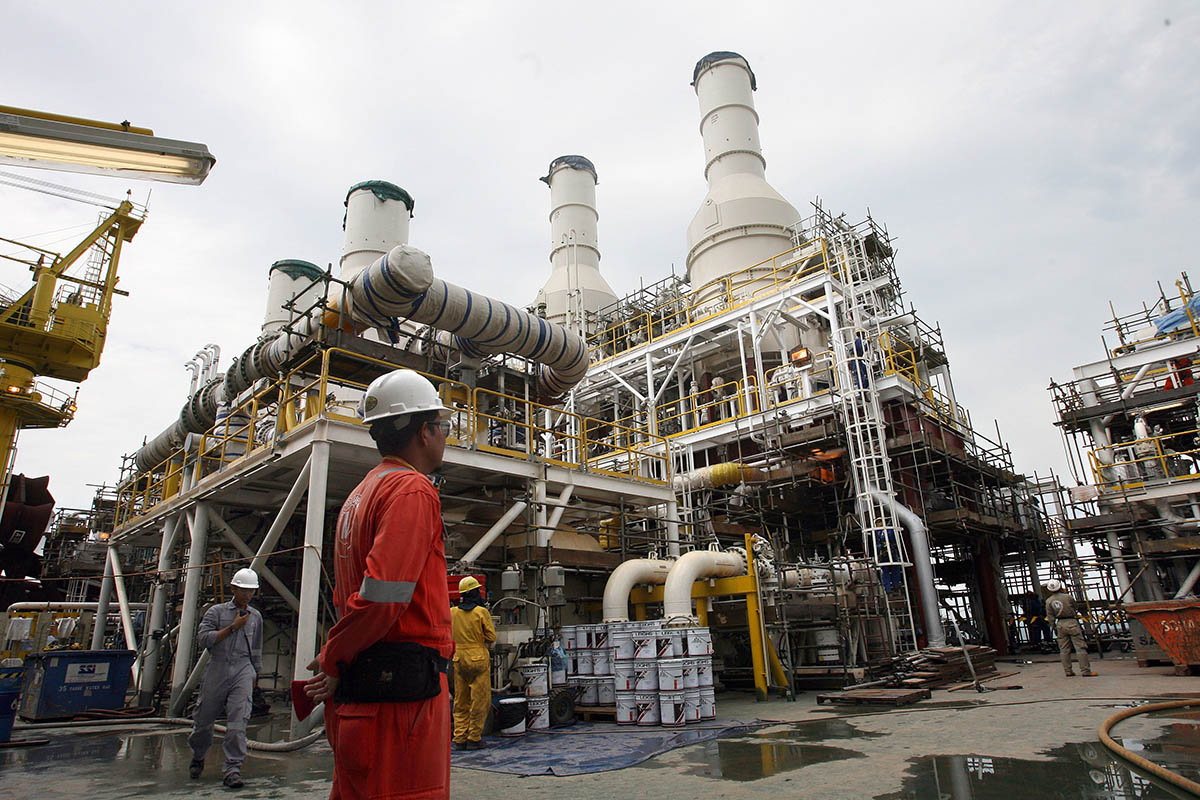A well-timed decision more than a decade ago to abandon coal in time for Thailand’s natural-gas boom is poised to make Sarath Ratanavadi the newest billionaire in Southeast Asia’s second-largest economy.
Based on the low end of the pricing range for his Gulf Energy Development Pcl’s initial public offering this week, Sarath has a net worth of 1.9 billion dollars, according to the Bloomberg Billionaires Index. Gulf Energy will try to raise at least 650 million dollars (21.3 billion baht) between Nov. 17 and Nov. 27, after posting its first annual profit last year and boosting net income more than eight-fold in the first nine months of 2017 to 75 million dollars (2.47 billion baht).
Gas currently accounts for about 60 percent of Thailand’s electricity mix by fuel type, followed by coal and lignite at 18 percent, according to the Energy Policy and Planning Office. The fuel has became critical for powering the country’s economic development while assuaging concerns about pollution.
Gulf Energy, which generates almost all of its power from natural gas, will double output to 4,370 megawatts by 2024 under signed deals with the government.
“Secured power sale contracts offer a stable revenue outlook,” said Chakrit Puechpan, the Bangkok-based executive vice president at MFC Asset Management Co., which subscribed for the initial public offering. “Economic growth in the region will open more investment opportunities for the company.”
Sarath decided to embrace gas after the Thai government in 2002 put deals for some coal plants on hold, in response to protests from environmentalists and villagers about the risk of pollution.
While natural gas is a fossil fuel, it emits less of the tiny particles that damage air quality compared with coal.
Sarath didn’t respond to an interview request for this story. A spokesman for Gulf Energy declined to comment on the billionaire’s net worth.
The natural-gas bonanza has some limits: Thailand’s military government is striving to reduce reliance on the fuel as reserves deplete in offshore fields.
But alternatives such as renewables, which account for roughly 7 percent of the electricity mix, take time to expand, and Thailand will need gas for sometime yet as an economic growth boom spills over into the country from the rest of the region. Thailand’s target is for renewables to account for 40 percent of energy consumption eventually.
Sarath, 52, earned a master’s in engineering from the University of Southern California after studying at Bangkok’s Chulalongkorn University. He rarely gives interviews or appears in photos, though he made a cameo at Gulf Energy’s IPO presentation to local investors this month in Bangkok, before ducking out to leave company management to answer questions.
Gulf Energy is a holding company with electricity, steam and chilled water generating projects. The group’s partners include Electric Power Development Co., a Japanese power developer known as J-Power, according to the company’s IPO filing.
Sarath joins at least one other billionaire in Thailand’s power industry as the fortune of Somphote Ahunai, founder of Bangkok-based renewable energy producer, Energy Absolute Pcl, has continued to rise after he became a billionaire in 2014.
Gulf Energy’s share sale is on course to be the largest in Thailand since the Jasmine Broadband Internet Infrastructure Fund’s IPO in 2015. Thai IPOs have rebounded from a four-year low, with recent listings soaring amid a rally in the benchmark SET index. – Bloomberg
Recommended stories:
